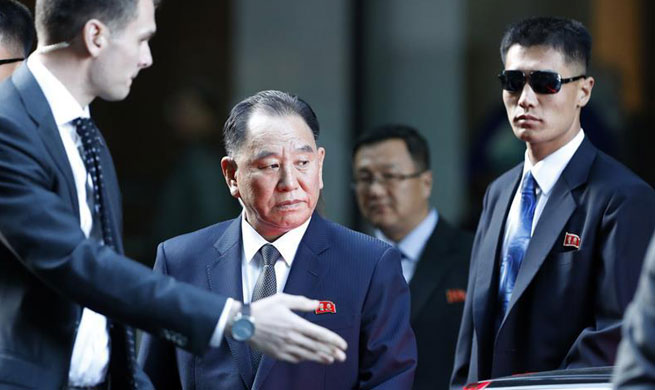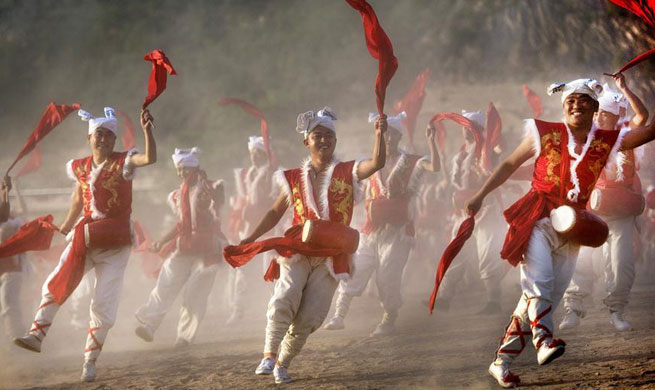
Photo taken on May 31, 2018 shows the scene of the retrial by the Supreme People's Court (SPC) in Beijing, capital of China. Zhang Wenzhong, former chairman of retail company Wumei Holdings, was acquitted of fraud, bribery and embezzlement charges Thursday after a retrial by the SPC. The SPC ruling also acquitted Zhang Weichun and Wumei Holdings, two other defendants in the case, of charges of fraud and giving bribes, respectively. (Xinhua/Xu Lixin)
BEIJING, May 31 (Xinhua) -- Zhang Wenzhong, former chairman of retail company Wumei Holdings, was acquitted of fraud, bribery, and embezzlement charges on Thursday after a retrial by the Supreme People's Court (SPC).
The SPC ruling also acquitted Zhang Weichun and Wumei Holdings -- two other defendants in the case -- of charges of fraud and giving bribes, respectively.
Zhang Wenzhong, Zhang Weichun and the retail company were prosecuted in 2007 by the Municipal People's Procuratorate of Hengshui in north China's Hebei Province.
After the defendants were given sentences and fined according to a ruling by the Intermediate People's Court of Hengshui in 2008, they petitioned Hebei Higher People's Court.
Zhang Wenzhong was sentenced to 12 years in prison and fined 500,000 yuan (about 78,000 U.S. dollars) for previous charges in a final ruling by Hebei Higher People's Court in 2009.
He petitioned the SPC in October 2016 and the SPC decided to retry the case in December 2017.
The SPC ruling identifies faults in ascertaining facts and applying laws in the previous instances, stating such errors must be rectified in accordance with the law.
The court said national compensation procedures and the retrieval of fines and property will be launched in accordance with the law.
More than 80 people, including relatives of the defendants, representatives of employees of Wumei Holdings, legislators, political advisors, academics, representatives of relevant institutions, and members of the public were present for the verdict.
The SPC's adjudication supervision tribunal said in a statement after the procedure that the case should be taken as a "benchmark" for Chinese courts to protect property rights and entrepreneurs' rights.
Properly handling some private enterprises' irregularities in operation "under specific historic conditions" is an important part in strengthening judicial protection of property rights, it said.
Whether such irregularities are crimes or not must be strictly defined, it said. For the non-criminal offenses, administrative, financial punishments or civil compensations, rather than criminal penalties, may be used.
The statement said the judiciary should learn a lesson from the case that adjudication must be based on facts and evidence and that the country's policies must be accurately understood and observed.

















